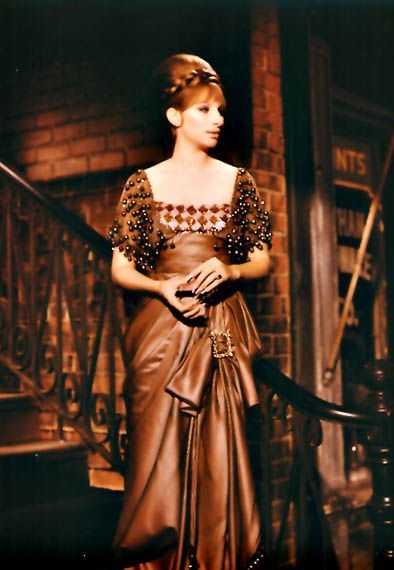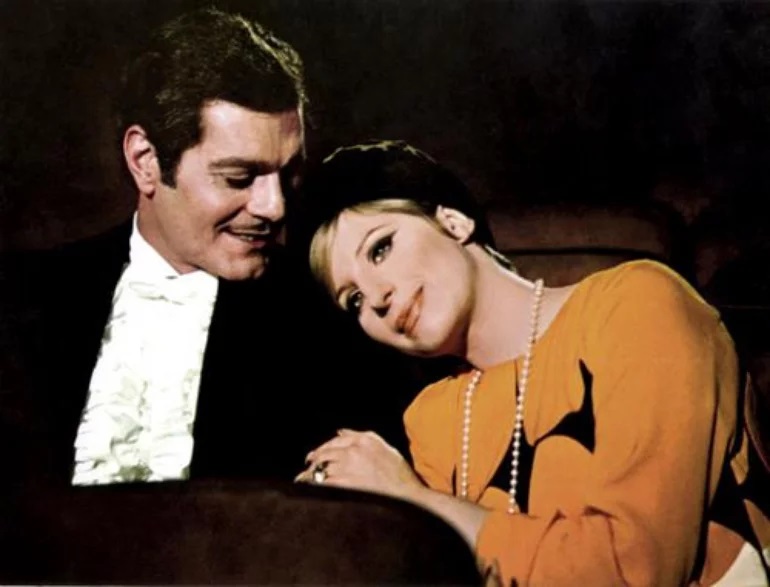
Streisand as real life funny girl Fanny Brice
Nobody, not even the late great Michael Jackson, has done what Barbra Streisand has: bring home the Oscar, the Grammy, the Emmy and other major awards and lasting in the public consciousness for over five decades. Hollywood may have snubbed her directorial feat (not to mention her starring role) in Yentl, but it sat up and took sharp notice when she debuted in the musical biography of comedienne Fanny Brice, Funny Girl.
Now streaming in Netflix is this debut film, a welcome relief in the time of COVID-19 and from the slew of Korean tele-dramas. May it mean the acquisition of more Streisand starrers to meet the insatiable appetite of her fans. If one can sit through an average of 16 episodes per Korean drama, one can also enjoy through repeated viewings the beauty of the singer’s voice and the expressiveness of her acting.
Streisand was co-winner of the Oscar Best Actress in 1968 along with another great, Katharine Hepburn (for Lion in Winter). But this biased observer believes the award should have been for the younger actress to hog. Make up your minds, judges!
Even if Streisand was partly singing the definitive interpretation of the song “People” to a lamppost after Nick Arnstein (stiffly played by Omar Sharif) exits from the scene, she still has what is called in contemporary Filipino as hugot –pulling something from a deep, emotional source. Or to put it another way, feel na feel!
US-based humanities teacher and music lover Benjie Abellera said in Facebook about the actress-singer: “What a phenomenal voice and interpretive sensibilities she has.”
Even if one is watching her from the small screen, one is moved to cheer her “People” in the first quarter of the movie and cry “Encore.” One empathizes with the Arnstein character who is awestruck by her presence and heartfelt song.
As public relations practitioner Mariano Garchitorena said, “She was a star from the (her) get-go.” How could the Oscar jurors not have realized that?
Funny Girl follows star-struck Brice’s journey from awkward chorus girl (she wasn’t meant to be one because she was destined for stardom) to Broadway marquee crowd-drawer. In between she is romanced and seduced by the gambler Arnstein.

Omar Sharif and Barbra Streisand as Nick Arnstein and Fanny Brice
There’s a bit of a feminist slant in the song “Don’t Rain on My Parade” when she pursues him by train and tugboat, against the better advice of her women friends and without his knowledge and invitation, all the way to the ship where he is engaged in high-stakes poker games. Read: “Don’t tell me not to live / Just sit and putter / Life’s candy and the sun’s / A ball of butter / Don’t bring around a cloud / To rain on my parade / Don’t tell me not to fly / I’ve simply got to / If someone takes a spill / It’s me and not you / Who told you you’re allowed / To rain on my parade.” Who’s to say a besotted woman has no right to pursue her man?
Perhaps one should correct oneself that there’s another fun version of the same song sung generations later by the cast of the TV series Glee, but here’s the thing with Streisand. She owns her songs. Composed by Jule Styne with lyrics by Bob Merrill, the songs in “Funny Girl” are too connected to and identified with her that one can’t bear it when other interpreters transgress or even try their hand in them. When she trots out a standard as she does in recent years, the interpretation is always fresh to the jaded ear.
Seeing Funny Girl again makes one more attentive to production values. One wouldn’t be surprised to learn if the star had a say in selecting and approving her costumes, particularly her long dresses. She is partial to the flattering empire cut which makes each gown a classic. Even her hairdo in the first half of the film, whether let down with bangs or upswept and held by a jeweled pin, will never go out of style.
Apart from “People” that defined the first act of the film, the other song that buoys the second half is “My Man” and expresses Brice’s sentiments for her husband who’s about to be released from prison for embezzlement. This time the song sounds like the lament of a martyr wife (“What’s the difference if I say / I’ll go away / When I know I’ll come back on my knees some day? / For whatever my man is / I am his forever more”). As Brice’s mother warns her, she blindly loves Arnstein to the extent that she cannot seem to help him.
But in Streisand’s hands the song has a triumphant edge. And aren’t the lovers of this performer the luckiest in the world?